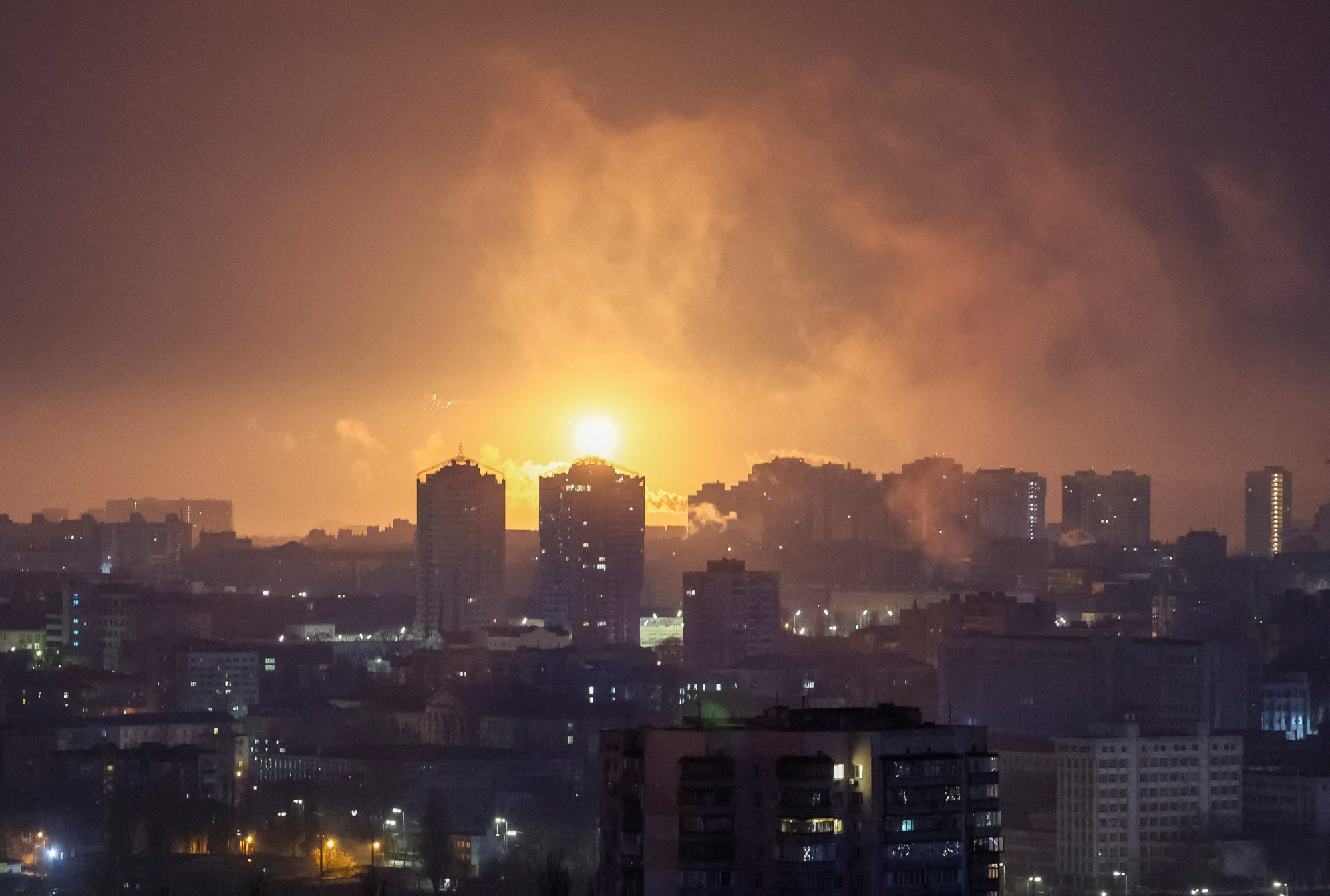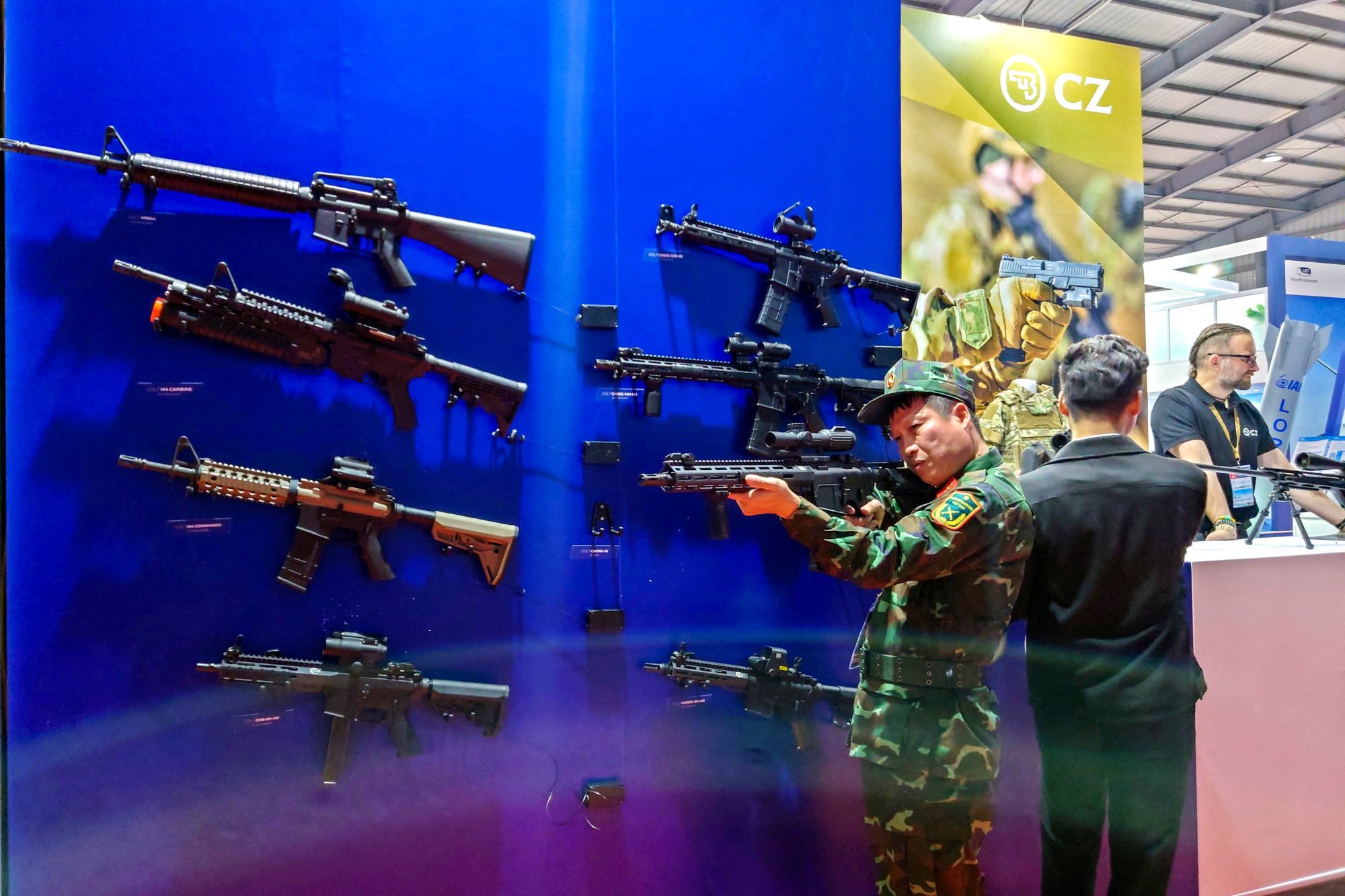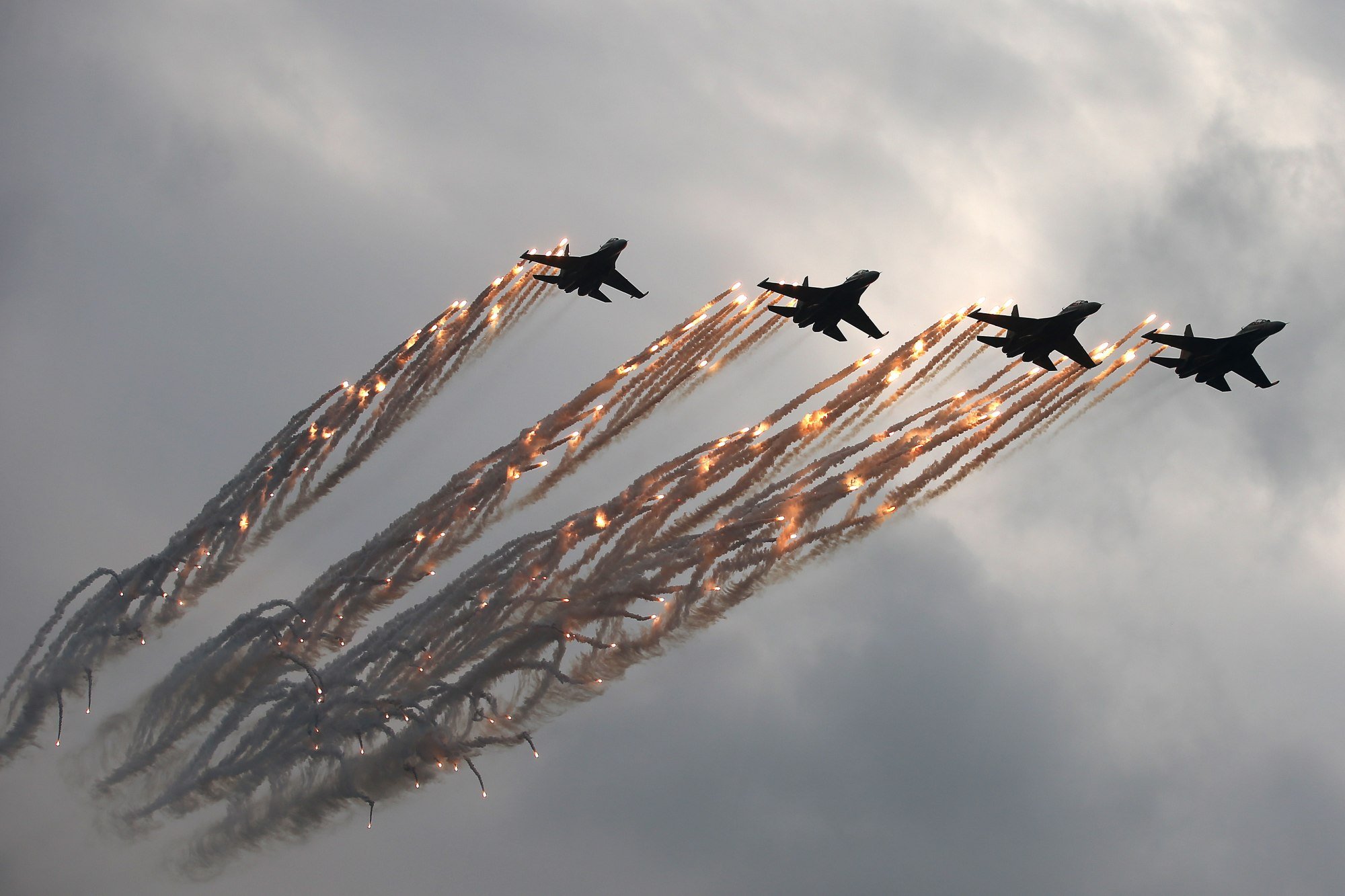But the figure last year was negligible by comparison, according to the institute. In fact, 2023 saw Vietnam import the fewest weapons since 2007, by volume.
Vietnam seeks to curb reliance on Russian arms amid Ukraine war
Vietnam seeks to curb reliance on Russian arms amid Ukraine war
Nguyen The Phuong, a Vietnam defence specialist at the University of New South Wales in Australia, said an important prong of the Southeast Asian nation’s military modernisation effort was constructing a strong, independent and dual-use defence-industrial complex, with the help of military-owned conglomerates and the private sector.
Reducing reliance on arms imports is a priority in the near term, Phuong said – at least for non-sophisticated weapon platforms used by ground forces.
“More advanced weapons are a problem, as Vietnam relies on Russia for purchasing tanks, warships and military aircraft,” he said. “But this issue is not easy to overcome, especially with the war in Ukraine predicted to last for several more years.”

One factor weighing on the minds of Vietnam’s defence planners is the performance of big-ticket Russian weapon platforms on a modern battlefield, where drones, cruise missiles and electronic warfare can prove more decisive.
The last major purchase of Russian arms that Vietnam is known to have made was 64 T-90 tanks in 2016. But these tanks have regularly “come to grief” in Ukraine when targeted by US-made Javelin anti-tank missiles and Saab Bofors Dynamics NLAW “fire-and-forget” projectiles, said Carl Thayer, a Vietnam specialist and emeritus professor at the University of New South Wales in Australia.
The Vietnamese military has long been familiar with an old way of doing things
One difficulty Vietnam faces in adapting to modern weapons and platforms is weaning itself off the Soviet-era tanks, fighter jets and warships that still make up a significant chunk of its arsenal, Phuong said.
“The Vietnamese military has long been familiar with an old way of doing things,” he said, adding that the country’s opaque arms procurement process was also likely to stand in the way of future weapons deals.
“Last but not least, money” is a major issue, Phuong said, as modernising any navy or air force was “notoriously expensive”.

In 2022, Vietnam signed a memorandum of understanding with Russia for a substantial weapons purchase, Thayer said.
Hanoi has been making clandestine plans to buy Russian arms in contravention of US sanctions, The New York Times reported in September, citing a leaked internal Vietnamese government document.
The document, dated March 2023, laid out how Vietnam proposes to modernise its military by secretly paying for defence purchases via a joint oil venture with Russia in Siberia.
Signed by a deputy finance minister, the leaked document said Vietnam was negotiating a new arms deal with Russia that would “strengthen strategic trust” at a time when “Russia is being embargoed by Western countries in all aspects”.
Alternatives to Russian arms
Noting that each of the partnerships’ joint statements contains a section on defence cooperation, Thayer said that these clauses could provide a basis for Vietnam to start exploring arms purchases from other countries.
“South Korea has a robust defence industry and is best placed to provide big-ticket weapon platforms, including warships, jet aircraft, artillery and missile systems,” Thayer said, adding that Washington had also offered Hanoi help in developing its defence capabilities.

The East Asian nation shipped slightly less than US$2 billion worth of arms to Southeast Asian countries between 2017 and 2021.
Improved relations with Washington will make it easier for Hanoi to access US allies’ military technologies, Phuong said, while the upgrades to ties with other countries could help Vietnam build out its defence-industrial capabilities.
Joint arms development projects are likely in future, he said, though it may take some time before Vietnam is cleared to buy lethal weapons from US allies, rather than just spare parts and components.
“The dilemma for Vietnam is that it needs a strong and modernised navy and air force now, but at the same time it is struggling, and hesitant, to find an alternative to Russian products,” Phuong said.
He said Vietnam was likely to either continue its arms purchases from Russia, risking sanctions and reputational damage, or engage more with Western suppliers – which would require significant institutional change within the Vietnamese military.
Either way, “time is critical”, Phuong said.

